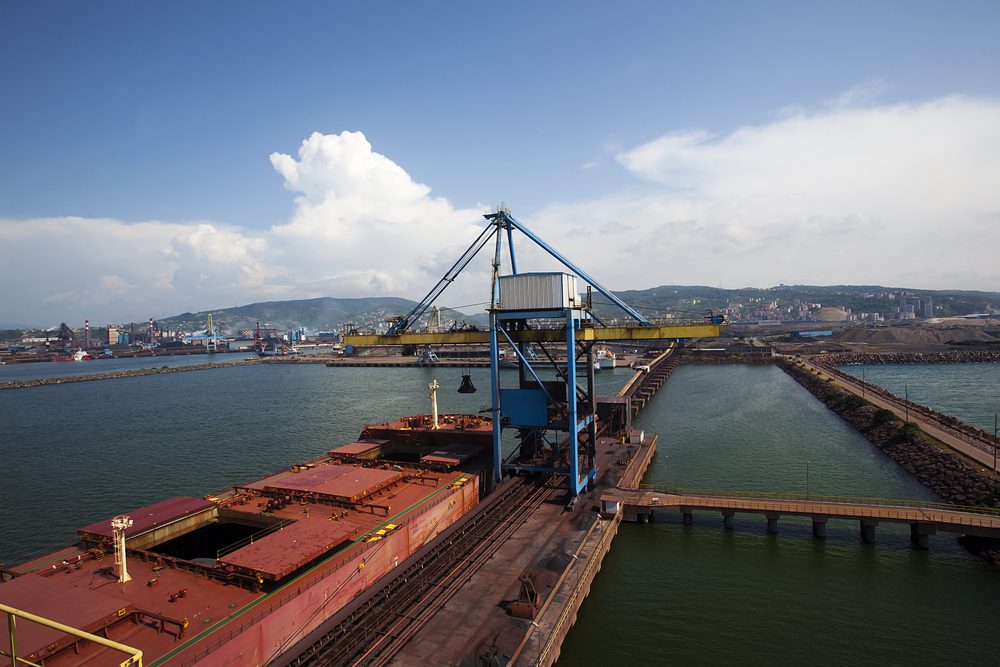Drone Attack Strikes Tanker at Russia’s Rostov-on-Don Port
A Ukrainian drone attack struck a tanker docked at the Russian port of Rostov-on-Don early Thursday, resulting in casualties among the ship’s crew and sparking a fire at the facility,...

By Ann Koh and Hallie Gu
(Bloomberg) –Dirty bulk ships used to carry iron ore are being scrubbed clean so that they can transport grain to Asia, in an unusual shift of cargoes prompted by a slump in demand for the steelmaking ingredient.
China’s downturn in the housing market has weighed on iron ore, driving freight rates for bulk carriers down 50% from a year earlier. That’s made it more attractive for some of the world’s biggest agriculture traders to book iron ore vessels for shipments of corn and soybeans.
Related Article: Iron Ore Ships Turn to Coal to Survive China’s Slump
While the number of such cargo switches are relatively small, it’s the latest shift by traders wrestling with dramatic changes in commodities markets sparked by Russia’s invasion of Ukraine and China’s weakening economy. The war created extreme volatility in global grain markets, allowing trading houses such as Cargill Inc. to post bumper profits.
Large iron ore ships typically stay away from grain as it involves a time-consuming cleaning processto make the vessels safe for carrying food. Washing a huge cargo hold dirty from iron ore is a necessary step to ensure that consumers of the grain — humans or other animals — don’t ingest rust, metallic sand or dirt.
Before picking up grain, cleaning gangs first have to lower themselves by winch into black-stained cargo holds. They then blast water and chemicals at high pressure against the walls before using brushes to scrub out gunk and then siphon the muddy water away.
The deep-cleaning process can cost between $7,000 and $8,000 and require a few extra days of chartering, according to one trader. This could extend to a week and require shipyard workers to sand down and repaint the walls if the dirty coating can’t be removed.
The ships of choice are Baby Capes, the smallest of Capesize vessels with capacity to carry about 100,000 tons. That’s much bigger than Panamax bulk vessels that normally carry grain and hold about 60,000 tons.
The depressed iron ore trade this year could be pushing Baby Capes to seek “alternative employment,” said Ralph Leszczynski, head of research at shipbroker Banchero Costa & Co.
The main allure for switching is price, despite the extra cleaning cost. In the first 10 months of this year, it was cheaper to hire a Capesize vessel than a Panamax by an average of $5,200 per day, the most for that time period since data going back to 1999, according to Arrow Shipbroking Group.
China’s COFCO International Ltd. and US-based Archer-Daniels-Midland Co. and Cargill have booked about four Baby Capes to deliver grain to Asia next year from South America, said people with knowledge of the matter. ADM declined to comment.
COFCO International said it has recently booked its first Baby Cape vessels to transport soymeal from Brazil to Southeast Asia next year.
“Initially it comes down to simple economies of scale — the more we load the cheaper the freight cost is for our customers, and the lower the carbon footprint,” said Alessio La Rosa, global head of freight at COFCO International.
A spokesperson for Cargill said it routinely uses Baby Capes for grain and other shipments, and expects to see more of such vessels in the future.
© 2022 Bloomberg L.P.

Sign up for gCaptain’s newsletter and never miss an update

Subscribe to gCaptain Daily and stay informed with the latest global maritime and offshore news
Essential news coupled with the finest maritime content sourced from across the globe.
Sign Up